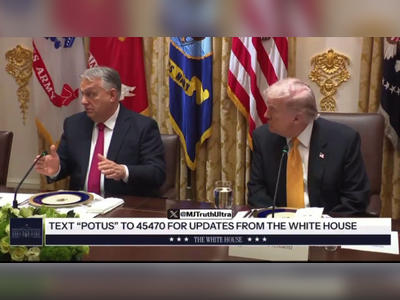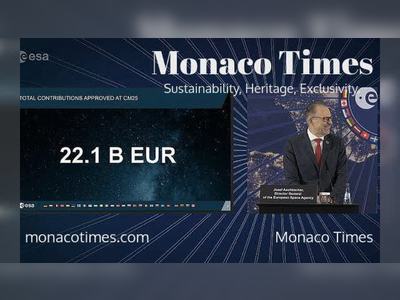Emmanuel Macron's Historic State Visit to Monaco
A two-day visit with Prince Albert II leads to key agreements on marine preservation and Franco-Monegasque cooperation.
Emmanuel Macron's recent state visit to Monaco marks the first such visit by a French president since François Mitterrand in 1984. The two-day visit, hosted by Prince Albert II, took place just before the upcoming 3rd United Nations Ocean Conference (UNOC3) scheduled in Nice.
This visit underlines the French-Monaco commitment to a shared future, referred to as a "community of destiny."
During the visit, Macron and Prince Albert signed a joint declaration emphasizing the preservation of marine ecosystems.
The declaration commits both nations to fight against marine pollution and illegal fishing practices.
As signatories of the Biodiversity Beyond National Jurisdiction (BBNJ) initiative, France and Monaco aim to "set an example" for marine biodiversity conservation ahead of the UNOC3, which they will co-host with Costa Rica.
Further agreements were reached in various areas.
An amendment to the 1963 customs convention was signed to enhance financial tracking between the two territories.
A charter for sustainable cruising in the Mediterranean was established to outline eco-friendly practices in that sector.
Additionally, support for the international French-language network TV5 Monde was reiterated, in response to recent concerns about Monaco's governance role within the network.
Both parties also expressed their intention to modernize the statutes of the Oceanographic Institute, founded by Prince Albert I and Commander Jacques-Yves Cousteau, which operates in both Monaco and France.
On the technical front, there are plans to bolster cooperation in road safety, which will be addressed in the upcoming Franco-Monegasque cooperation commission scheduled for November 28, 2025. Additionally, both nations are committed to sustaining French diplomatic and consular representation in Monaco and advancing shared scientific endeavors under the Ramoge agreement aimed at integrated coastal zone management and pollution control.
In a gesture of goodwill, France proposed designating a submarine relief in the Indian Ocean, named the "Prince Albert II Mount," which is located at a depth of 1,958 meters, corresponding to the year of the sovereign's birth.
The UNOC is set to convene from June 9 to June 13, 2025, with the participation of representatives from 193 United Nations member states focused on a unified direction for ocean preservation.
The UN Ocean Conference represents a significant global gathering aimed at preserving the world's oceans.
The event will feature each country presenting its commitments for ocean conservation and will include sessions involving scientists, NGOs, and civil society organizations.
The "Ocean Action Panels" will serve as a platform for various stakeholders to collaborate on actionable solutions for ocean protection.
Just prior to the UNOC, the Once Ocean Science Congress gathered 2,000 experts who developed ten recommendations for world leaders, calling for action on critical issues including reducing emissions, combating illegal fishing, and enhancing marine ecosystem protection.
At a preceding event, the Blue Economy and Finance Forum in Monaco highlighted commitments from various leaders, including Macron's announcement to prohibit all human activities significantly impacting seabed ecosystems in designated areas of France.
Current protected areas constitute only 0.1% of French territorial waters, with plans to expand this to 4% in the future.
Among the pressing environmental issues, the extraction of hydrocarbons from the ocean remains a contentious topic.
Despite previous trends favoring onshore extraction, a substantial proportion of future hydrocarbon discoveries is now anticipated from marine sources.
Recent studies indicate that nearly 20% of the world's oil reserves and about 30% of natural gas reserves are located in ocean floors.
As the UNOC approaches, the global community's focus on these pressing environmental challenges underscores the high stakes of effective ocean governance and sustainable resource management.
This visit underlines the French-Monaco commitment to a shared future, referred to as a "community of destiny."
During the visit, Macron and Prince Albert signed a joint declaration emphasizing the preservation of marine ecosystems.
The declaration commits both nations to fight against marine pollution and illegal fishing practices.
As signatories of the Biodiversity Beyond National Jurisdiction (BBNJ) initiative, France and Monaco aim to "set an example" for marine biodiversity conservation ahead of the UNOC3, which they will co-host with Costa Rica.
Further agreements were reached in various areas.
An amendment to the 1963 customs convention was signed to enhance financial tracking between the two territories.
A charter for sustainable cruising in the Mediterranean was established to outline eco-friendly practices in that sector.
Additionally, support for the international French-language network TV5 Monde was reiterated, in response to recent concerns about Monaco's governance role within the network.
Both parties also expressed their intention to modernize the statutes of the Oceanographic Institute, founded by Prince Albert I and Commander Jacques-Yves Cousteau, which operates in both Monaco and France.
On the technical front, there are plans to bolster cooperation in road safety, which will be addressed in the upcoming Franco-Monegasque cooperation commission scheduled for November 28, 2025. Additionally, both nations are committed to sustaining French diplomatic and consular representation in Monaco and advancing shared scientific endeavors under the Ramoge agreement aimed at integrated coastal zone management and pollution control.
In a gesture of goodwill, France proposed designating a submarine relief in the Indian Ocean, named the "Prince Albert II Mount," which is located at a depth of 1,958 meters, corresponding to the year of the sovereign's birth.
The UNOC is set to convene from June 9 to June 13, 2025, with the participation of representatives from 193 United Nations member states focused on a unified direction for ocean preservation.
The UN Ocean Conference represents a significant global gathering aimed at preserving the world's oceans.
The event will feature each country presenting its commitments for ocean conservation and will include sessions involving scientists, NGOs, and civil society organizations.
The "Ocean Action Panels" will serve as a platform for various stakeholders to collaborate on actionable solutions for ocean protection.
Just prior to the UNOC, the Once Ocean Science Congress gathered 2,000 experts who developed ten recommendations for world leaders, calling for action on critical issues including reducing emissions, combating illegal fishing, and enhancing marine ecosystem protection.
At a preceding event, the Blue Economy and Finance Forum in Monaco highlighted commitments from various leaders, including Macron's announcement to prohibit all human activities significantly impacting seabed ecosystems in designated areas of France.
Current protected areas constitute only 0.1% of French territorial waters, with plans to expand this to 4% in the future.
Among the pressing environmental issues, the extraction of hydrocarbons from the ocean remains a contentious topic.
Despite previous trends favoring onshore extraction, a substantial proportion of future hydrocarbon discoveries is now anticipated from marine sources.
Recent studies indicate that nearly 20% of the world's oil reserves and about 30% of natural gas reserves are located in ocean floors.
As the UNOC approaches, the global community's focus on these pressing environmental challenges underscores the high stakes of effective ocean governance and sustainable resource management.









